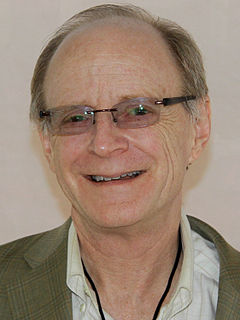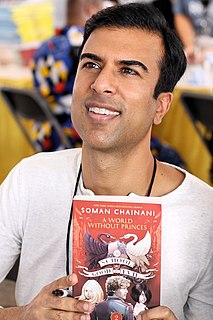A Quote by Henry Winkler
Somebody said, 'Hey, there is a lull in your career. Why don't you write books about your [dyslexia]?' We are currently writing our 34th novel.
Related Quotes
After my first novel, my mother said to me, 'Why don't you make your writing more funny? You're so funny in person.' Because my first novel was rather dark. And I don't know, but something about what she said was true. 'Yes, why don't I?' Maybe I was afraid to be funny in the writing. But since then, seven books later, almost everything I've done has a comedic edge to it.
The age of the book is not over. No way... But maybe the age of some books is over. People say to me sometimes 'Steve, are you ever going to write a straight novel, a serious novel' and by that they mean a novel about college professors who are having impotence problems or something like that. And I have to say those things just don't interest me. Why? I don't know. But it took me about twenty years to get over that question, and not be kind of ashamed about what I do, of the books I write.
Over the next four days, I want you to write about your deepest emotions and thoughts about the most upsetting experience in your life. Really let go and explore your feelings and thoughts about it. In your writing, you might tie this experience to your childhood, your relationship with your parents, people you have loved or love now or even your career. How is this experience related to who you would like to become, who you have been in the past, or who you are now?.
My teachers always said, "You're very talented, but don't set your heart on art. You're only a girl." I was inspired by Virginia Woolf in 1960, but they wouldn't let me write about her. They said she was a trivializer. I also wanted to do a paper on Simone de Beauvoir, and my philosophy teacher said, "Why would you write about the mistress? Write about the master." That was Sartre.
So we went to Atari and said, 'Hey, we've got this amazing thing, even built with some of your parts, and what do you think about funding us? Or we'll give it to you. We just want to do it. Pay our salary, we'll come work for you.' And they said, 'No.' So then we went to Hewlett-Packard, and they said, 'Hey, we don't need you. You haven't got through college yet.'
Objectifying your own novel while writing it never really helps. Instead, I guess while you're writing you need to think: This is the novel I want to write. And when you're done you need to think: This is what the novel I wanted to write feels like and reads like and looks like. Other people might call it sweeping or small, but it's the book you chose.
You learn so much with each book, but it's what you teach yourself by writing your own books and by reading good books written by other people - that's the key. You don't want to worry too much about other people's responses to your work, not during the writing and not after. You just need to read and write, and keep going.
As a rule, I am very skeptical of tying books to anniversaries. I don't think readers care. I also feel that it just about guarantees that somebody else will be writing a book on the same subject, but being a former journalist, I'm always interested in, like, why write about something today? Why do it now?
The process for writing a picture book is completely different from the process of writing a chapter book or novel. For one thing, most of my picture books rhyme. Also, when I write a picture book I'm always thinking about the role the pictures will play in the telling of the story. It can take me several months to write a picture book, but it takes me several years to write a novel.
Maybe being oneself is an acquired taste. For a writer it's a big deal to bow--or kneel or get knocked down--to the fact that you are going to write your own books and not somebody else's. Not even those books of the somebody else you thought it was your express business to spruce yourself up to be.
The people who review my books, generally, are kind of youngish culture writers who aspire to write books, or write opinion pieces about what they think of Neil Young, or why they quit watching ER or whatever. And because of that, I think there's a lot of people who write about my books with the premise of, "Why this guy? Why not me?"
That afternoon he told me that the difference between human beings and animals was that human beings were able to dream while awake. He said the purpose of books was to permit us to exercise that faculty. Art, he said, was a controlled madness… He said books weren't made of themes, which you could write essays about, but of images that inserted themselves into your brain and replaced what you were seeing with your eyes.




































